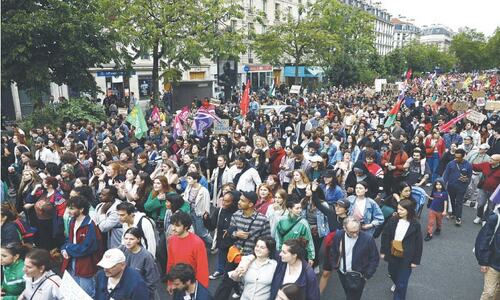 |
I’m motivated to write this blog because of a death threat that was bought to my attention, posted on to a news update on the teenage activist, Malala Yousafzai. Since web 2.0 sites have become popular with middle class Pakistanis over the last four years, the criminal Pakistani trend of making death threats has migrated online. Pakistanis who make death threats are a serious problem in this country. If there is a difference between Pakistanis and Indians that seems to have crept up, it might be the willingness of individual Pakistanis to quickly resort to violence. I think it is worth examining the sociological sources of this criminal trait.
The neo-liberal era which we have inhabited for the last three decades has become a tiresome burden on the underprivileged sections of society. This country’s gender, childhood, and labour inequities are amongst the worst in the world, so bad that they even mutate into cruel ethnic and sectarian violence. With no global power arguing forcefully against social and economic exploitation it is up to individuals, their countries and their governments to combat domestic social inequities.
When individuals who fight for rights are treated like societal pariahs, it is a tragedy.
This criminal trait, in particular, began with deranged Pakistanis on the internet who celebrated the murder of Governor Salman Taseer. When these disgusting expressions occurred on the social networking site Facebook, it became apparent that this cultural cruelty was stronger than any modern tool of communication. In its myopia, this cruel cultural feudalism only saw technology as a tool for its ideological ends rather than an available avenue in a relatively restricted world to learn new facts, explore new ideas and expand their minds. And a willingness to wish death upon those who violated their sense of Islam or Pakistani religious culture is a feature of this.
The viciousness of Pakistani middle classes’ attitude is as astounding as it is cruel, abrupt and insistent in its irrationality and fanaticism. Their words resemble the irrational deeds of the Jihadi organisations that have broken free from the control of their handlers.
Irrational displays of power were once an action limited to feudal lords in Pakistan. During periods of military rule, when an urban bureaucracy and military dominated this country, this irrational attitude was transmitted and co-opted from the junior members of those military-era power arrangements.
These rural bandits who came under the protection of feudal lords were called Dharels. Amar Jaleel was a columnist for Dawn magazine who bought attention to the topic of rural Dharels and the standing form of injustice they presented to rural society as murderers and robbers who remained unpunished.
At a time when members of the military-bureaucratic state were industrially producing Jihadist militias (as covered in Brigadier Mohammad Yousaf and Mark Adkin’s “Bear Trap”) in the 1980’s Pakistan’s middle classes were also rising up at the same time. These middle classes have turned out to be so ideologically regressive in their contempt for the lower orders that this attitude would not look out of place with the feudal lords of rural Pakistan.
The intolerance they also display is the same that was being patronised by the state at the same time the neo-liberal economy of the 1980’s was raising them up. Along with feudal-like contempt for labour the middle classes also accepted the military’s contempt for politicians and until recently, democracy as well. The result of these reactionary attitudes in this rising class was that the Zia era’s attempts at institutionalising unequal social relations were successful, and organised degradation for Pakistan’s labourers, women and minorities was embedded in the dominant economic system of Pakistan’s cities and state structure.
The questionable business ethics of many of those who employed middle class Pakistanis in the reactionary Ziaist chaotic urban environment saw criminals taken under with business, political or intelligence protection. And the rising middle class tacitly accepted these criminals as beneficiaries of the largesse they were experiencing. Rightful scorn at this economic lawlessness was diverted to feckless politicians who could not marshall the same firepower as drug smugglers, spies and terrorists. Death threats, to dissuade prosecutors, activists, reporters and policemen are one of many reprehensible criminal like actions taken by these influential post-1980’s bandit classes to protect their quasi-legitimate and deeply exploitative economic activities.
Also read: Pakistan’s fixation with feudalism
The casual way in which they threaten violence on those who interfere with their shady economic activities and dubious religious culture, echoes the threats of the feudal lords against peasants who do not toe their exploitative line. We see in this neo-liberal era that government has been reduced to making way for the practices of business, and the capacity and opportunity to successfully exploit human weakness has expanded beyond the feudal class into the Pakistani bourgeoisie.
And the persistence of thinking that treats survivors with contempt, considers women and girls property and is not only willing but well prepared, whether with a bank account, a cache of weapons or a gang of crooks to go outside the law to get whatever its greedy little heart desires.










































